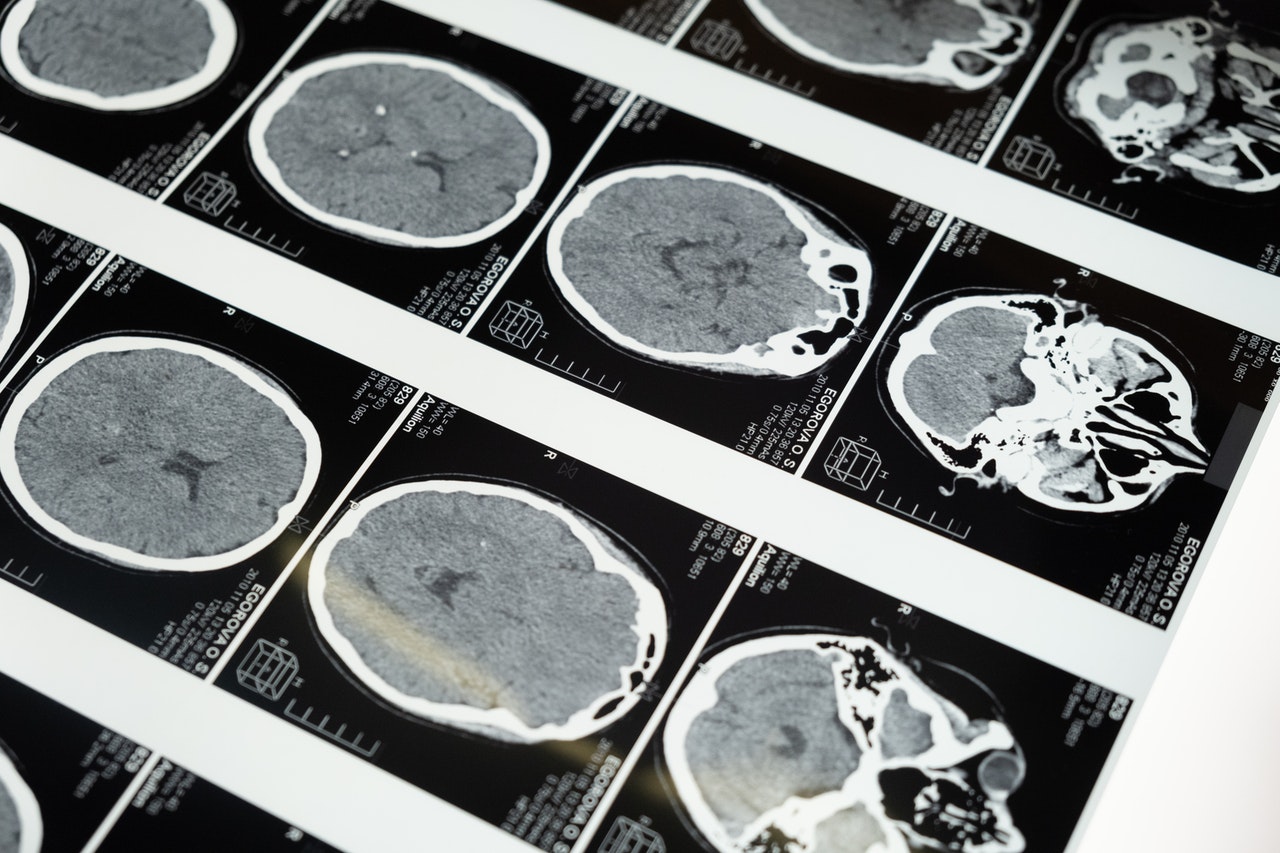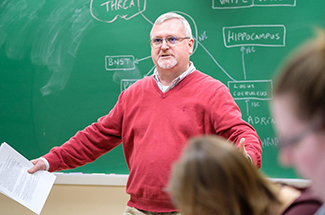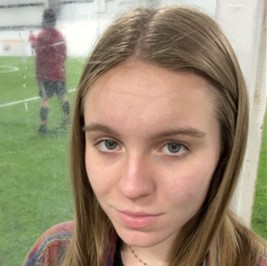
Why Study Neuroscience at K?
As a Kalamazoo College neuroscience student, you will dive deep into the structure and function of the human nervous system as you explore its role in human health and behavior.
Why do you remember some details but not others? How does your arm know to move based on your thoughts? How do your upbringing and genetics affect your cognitive ability? Why are some folks more biologically resistant to medication than others? These are just a few of the core questions you will explore as a neuroscience student.
As a deeply interdisciplinary field, you will take courses in biology (e.g., Neurodegenerative Disorders), psychology (e.g., Physiological Psychology), philosophy (e.g., Logic and Reasoning), and computer science (e.g., Cognitive Science) as you learn about neuroanatomy and its role in human behavior.
The wide breadth of coursework required for a neuroscience concentration will prepare you for a variety of careers, including in medicine, pharmaceuticals, artificial intelligence and cognitive science.
What can you do with a Neuroscience Concentration?
Below are some of the careers, employers, and graduate schools of our neuroscience alumni.
Careers
- Physician
- Professor
- Behavior Therapist
- Veterinarian
Employers
- National Institute of Health
- Charles River Laboratories
- Western Michigan University
- Pfizer
Graduate Schools
- University of Michigan
- Ohio State University
- University of Wisconsin-Madison
- Harvard Medical School
Meet the Current Departmental Student Advisor
What is the best thing about being part of this department?
The highly interdisciplinary nature of neuroscience is reflected in the curriculum. This breadth of academic variety in my studies brings me so much joy. But much more than that, because of the broad scope of the curriculum, my peers span many departments and disciplines. I get to connect with and learn from so many incredibly passionate and interesting people, both professors and peers. K is such an academically and personally lively school, and the neuroscience concentration has allowed me to engage with so much of it in so many ways.
What is your biggest piece of advice to first-years and sophomores about getting connected to this department?
I would recommend that first years and sophomores interested in this concentration check out the department website, peruse the curriculum, and get in touch with current concentrators like me as well as with some of our lovely faculty. We love to chat, and we can be a really great help for those who are considering the discipline, trying to navigate the course options, and, most importantly, providing some guidance and support as students try things out, discovering what best suits them but also what doesn’t. I think both are super valuable.
What drew you to the department?
I’ve always been super driven to study the mind, and I understood that studying the brain and its physiology was an integral part of that, but when I came to K, I initially thought that I would just study psychology. I had written off a potential career in the sober sciences, as the study of the humanities has always been my passion. I was advised by peers and profs to give it a try, and I found myself really come to life as a student and as a developing scientist thanks to my amazing peers and profs.
What is your favorite thing about K?
The liberal arts education is something I really value, and I think that K does a great job of providing variety, allowing for very unique paths to be taken.
What is your Senior Integrated Project (SIP)?
My SIP will be a data analysis project, investigating the relationship between attention, working memory, and cognitive flexibility as it pertains to semantic fluency performance to study the dynamics underlying divergent thinking performance.
What are your career aspirations/next steps after K?
I intend to pursue a Ph.D. in cognitive psychology and neuroscience, and my long-term goal is to work in academia. I have a real passion for research and education.
Faculty
Robert Batsell (Co-chair), Professor of Psychology. BA Southern Methodist University MS, PhD Texas Christian University
Peter Erdi (Co-chair), Luce Professor of Complex Systems Studies. MSc L. Eotvos University, Budapest MSc Technical University of Budapest PhD, DSc Hungarian Academy of Sciences
Blaine Moore, Professor of Biology. BS University of North Florida PhD University of Florida


